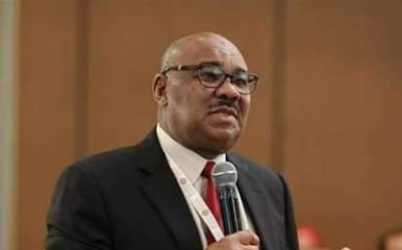Government will not float Sudanese pound in near future
September 23, 2019 (KHARTOUM) – Sudan’s finance minister said on Monday that his government would not immediately liberalize the exchange rate regime for the moment pointing that the fragile economic situation in the country.

In a news conference held at the finance ministry on Monday, Ibrahim al-Badawi admitted the existence of an economic disaster in the country caused by the multiplicity of exchange rates.
He added that any attempt to deal with this issue should be handled within a global financial plan to ensure its success.
He further expected that the “exchange rate of the national currency will be liberalized within the emergency program in the middle of next year after the success of the 200-day plan” announced after his appointment earlier this month.
The Sudanese pound had been officially pegged at 45 to the dollar. However, due to the shortage of dollars in the country, the pound is rated in the parallel market at 70 to the dollar.
Economists point to the need to float the currency and to end administrative controls over foreign exchange before to undertake structural reforms to liberalize the economy of poor countries.
The attempts to fix the exchange rate without supporting fiscal and monetary policy result in overvalued exchange rates and severe pressure on the balance of payments.
Efforts to contain these pressures through price controls, rationing, and import licenses, depress the economy, reduce fiscal revenues, and cause external trade to shift to the informal sector, says an IMF report on the Sub-Saharan African countries.
Al-Badawi said his government will launch its 200-day rescue plan in October to curb the inflation and ensure supplies of subsidized basic commodities such as bread and petrol.
Instead of commodity subsidies, the government want to disburse cash directly to poor families by the end of the 200-day plan by the end of June 2020, according to the minister.
“The proposed direct support will not exceed 300 Sudanese pounds per person,” he said.
He said that the economic plan aimed at restructuring “the banking sector, rationalize government spending, address the state’s financial burden and review tax exemptions, because 60% of economic activity is tax-exempt”.
The tax exemption was one of the means used by the officials of the former regime for their businesses and companies.
No removal from terror list soon
Sudanese officials have been calling for the removal of their county from the terror list because with the collapse of al-Bashir regime Washington has no reason to keep their poor country under its blacklist.
The new government has cannot ask the International Monetary Fund and World Bank for support while their country is in the U.S. State Department list.
Speaking about the Sudan designation as a state supporting terrorism, the Sudanese official said they were informed by Washington that the delisting process can take a year.
“American officials have informed us that removing Sudan from the U.S. terrorism list is complicated because it is tied to Congress and could take nine months to a year,” said the minister.
However, he disclosed that Prime Minister Abdallah Hamdok will request the World Bank for 2 USD billion to fund his economic plan.
Washington said it would not use its veto and pledged to encourage the international financial institutions to support Sudan.
(ST)
